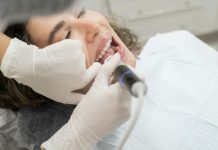
In a new study, researchers found that soaking in a hot tub for 60 minutes may provide similar post-activity heart benefits as 60 minutes of cycling.
This news could help people who are not able to exercise due to their health.
There are heart disease patient populations that would stand to gain tremendously from exercise, yet cannot do so.
Heat therapy may be a viable alternative to exercise for these patient populations.
The research was conducted by a team from the University of Oregon.
Exercise improves cardiorespiratory and blood vessel health by lowering blood pressure and reducing the amount of work the heart needs to do to pump blood throughout the body.
Previous research has shown that heat immersion, such as in a hot tub, also improves these factors, but less is known about how long after exertion the benefits last.
Understanding the beneficial effects of heat therapy is important because many people do not meet recommended physical activity guidelines or cannot exercise due to underlying health conditions or mobility issues.
In the study, the team examined a small group of healthy, young adults. They participated in two trial conditions on two separate days.
One condition consisted of cycling at 60% maximum effort for an hour. In the other condition, the volunteers sat almost up to their shoulders in a hot tub with 105-degree F water until they felt very hot, then were submerged to just above their waist for a total of an hour.
During both trial conditions, the volunteers drank 16.9 ounces of water to replace fluid loss from sweat.
The researchers found increased heart rate and dilation of the arteries, and lower blood pressure during both the cycling exercise and heat conditions.
The post-exercise period is an important timeframe that links exercise with long-term heart benefits.
The team says that similar post-stress heart responses were observed following exercise as following hot water immersion is compelling.
One author of the study is Christopher Minson, Ph.D.
The study is published in the Journal of Applied Physiology.
Copyright © 2021 Knowridge Science Report. All rights reserved.



